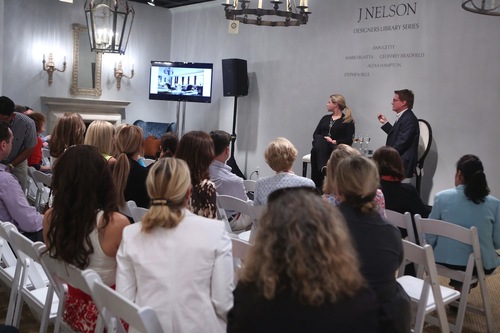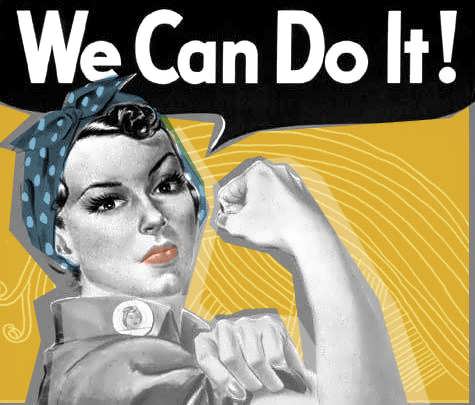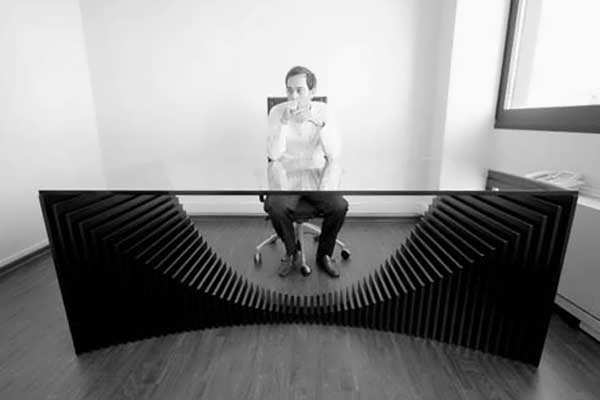A grand experiment to make this city a better place will start with teeny tiny houses and a back beat.
People’s Liberty is a philanthropic lab created to accelerate change, to identify people with great ideas and to invest in them. The cornerstone is the annual designation of two Haile Fellowships, which will provide the recipients with $100,000 each, to allow them the time to work on their projects.
On Monday, People’s Liberty will announce the initial fellows: two guys named Brad.
Brad Cooper will build remarkably small houses in Over-the-Rhine. These homes will be 200 square feet, well designed and environmentally sound. The key is that they will allow far more people a chance to become homeowners – and stakeholders.
«This will mean the ability for any citizen to have ownership,» Cooper said. «The opportunity has to be there.»
Brad Schnittger will create a regional musical licensing library,
which sounds dry and wonkish, but only because it is. When it happens, however, this platform could allow a viable music industry to grow around it, making Cincinnati a destination city for a young creative class that could help continue the region’s transformation.
Both men, chosen by a jury from nearly 100 qualified applicants, will now be able to quit their jobs and chase their dreams.
«We know Brad and Brad will be successful, provoking needed changes to the music and architecture industries,» said Eric Avner, CEO of People’s Liberty, which was born as a philanthropic experiment to last exactly five years.
«What’s potentially more exciting is how they will be examples to others. What else needs shaken up in our community? Who’s going to step forward with a new idea? For the next five years, People’s Liberty will be here to help.»
People’s Liberty is funded in large part by the Haile/U.S. Bank Foundation and the Johnson Foundation.
Simplicity and minimalism: It’s a lifestyle decision
The tiny house movement is not new, but the homes often are inhabited by the wealthy with a tree house fetish, or they’re second homes in rural America. Cooper’s idea is different: He wants tiny houses built on small infill lots, and he wants them to be viable homes available through traditional financing. Think of how many doors that opens.
If a tiny house were to sell for $80,000, and a buyer was able to secure $15,000 for a down payment, her mortgage would be $65,000. The monthly payment, principal and interest, on that loan would be about $315 – very affordable for first-time and low-income homeowners.
wants to be clear, however, that his is not a housing choice for low-income people. «This is not for poor people,» Cooper said. «This is for a wide variety of people who choose this as a lifestyle.»
That lifestyle includes simplicity and minimalism. It is for people who want to spend their time and money and energy on other things. It’s for people who are willing to live in a house that’s about one-ninth the normal size around here.
Cooper will build two houses in 2015, and he plans to sell both. His first job, starting in January, will be to work with banks to make sure there are financing options for buyers. Then, once a buyer steps forward, he will work with that person to accommodate his or her specific wishes.
There is not a lot of room in 200 square feet to put a bed, a kitchen, a bathroom, a living area and storage space. The kitchen would include about 8 linear feet of counter space. The bathroom would be a «wet» bathroom, meaning the shower head will make everything wet and everything drains. There will be storage, but not a lot, meaning that this is a home for a person who does not want a lot of material possessions.
These tiny homes will be designed specifically for people who want to create a smaller impact on the environment. Cooper, an architect intern who studied at the University of Cincinnati’s College of Design, Architecture, Art and Planning, and is now working toward his license, will design the house to use less energy than it produces through solar panels. That is called net-zero design.
He has used energy modeling, will use the most advanced materials he can to increase efficiencies and will spend much of his money on photovoltaic panels to gather solar power.
Cooper, 27, does not think he could live in 200 square feet. He estimates he would need about 300, which would allow him to work from home. Plus a garden.
One of his goals for making and selling 200-square-foot homes is to advance the small-living movement. He knows that, if he can make 200 square feet work, people will be far more willing to try 400 to 600 square feet. This will reduce environmental impact in part because a small house will allow people to build on small vacant lots that are not viable for traditional homes. These lots cost far less and will keep Cooper’s costs down. This also will allow people to live close to the city and close to each other without feeling crowded.
Cooper will use his money to give himself a small salary and to build his first house. He anticipates the first home will sell for approximately $85,000. This home will be on land from the Over-the-Rhine Community Housing group on a 99-year lease.
The second home will be designated for a person with a lower income, somewhere between 30-50 percent of the area’s median household income. The owner of the second home also will own the land.
The low mortgage payment, net-zero design and resulting tax abatements will keep monthly costs down. Cooper wants to sell the two properties to different types of buyers to show these homes can and will work for all kinds of people.
At the end of his first year, Cooper wants to have both houses built and sold, and he wants then to be working on his third or fourth. He has plans for building a tiny-home village. But mostly what he wants is more people to feel more invested in their own community.
«There should exist opportunities for all income levels to invest in their own community,» Cooper said. «It will allow more people to have voices.»
A music man with a plan: If you build it, they will come
Brad Schnittger wants to make his hometown more musically inclined. He is interested in livability and helping local corporations keep their money in the local economy. First he needs to convince local musicians that sometimes artists, even drummers, need to do things like a little legal work in order to make a living off their passion.
None of this will be easy.
Changes in the music industry over the past decade have made the process both more democratic and more daunting for artists. Record companies have lost their grip on the field, and technology has allowed more people to have more access to more music. It also has made earning a living more difficult. One avenue remaining is selling music for commercial use in television, advertisements and movies.
Before a band or a musician can do that, however, they need to document, register and license their music. Schnittger himself refers to this as «complicated and boring. And it is really scary to artists, so a lot of times they just don’t do it.» If a band creates a song and does not do these things, however, nobody can buy the rights to play it. The music may be lovely, it just will not be profitable. Commercially, it is as though the song does not exist.
Schnittger’s fellowship will allow him to build a site where musicians can do this in an easy and understandable way. This will allow two things to happen. First, corporations and advertising agencies will be able to listen to this music, and to buy it if they want to use it. Second, it will allow musicians the chance to profit from their own music. And this, Schnittger believes, will attract even more artists.
«Once we set up the platform, the hope is that a music industry will grow up around it,» Schnittger said. «And we can do it here. We have a music tradition dating back to King Records.»
The platform, which will have a name once Schnittger has his Haile Fellow money and buys the online name rights, will not just be friendly to musicians. It will benefit them. Once they register their music, they will be both creator and publisher, so all money coming in will be theirs. This platform is just a «pass through.» Bands will have to pay a small amount to register, think $50-$100, but then all money coming in will be theirs.
Schnittger, 35, says one reason he can do this is because he understands musicians, and they trust him. He has been playing his whole life. He started in a band with his brothers when he was a 5-year-old a drummer. The band’s name, of course, was Sounds like Schnitt. He has been playing with a band called the Sundresses for more than a decade, and they sound like punk and rock and blues all mashed up.
The band is respected enough in the industry to have been invited to play at South by Southwest seven times. «The biggest thing I have going for me is legitimacy in the music industry. I am a musician, I talk the talk,» Schnittger said. «These bands are my family.»
Haile Fellowships were never supposed to be a way to save the world. It was always hoped they would change the city. To create industry, to make work, to get money flowing.
«We were betting that we’d hear from individuals with bold ideas, with bold ambitions for changing the world,» Avner said. «We were looking for people who view the world a little differently, with contagious enthusiasm and optimism. We weren’t disappointed. Brad are Brad are exactly the type of people – and exactly the type of projects – that People’s Liberty is meant to empower.»
With all the corporations and branding agencies in Cincinnati, it would be great to keep that music money in Cincinnati, of course. But Schnittger believes the most important part of his plan is how it would change this city culturally. Cincinnati is ready for musicians because there are affordable apartments and a variety of venues. If this platform will allow people to make some more money, the musicians will follow, and that can only be good news.
«Have a creative class moving here and making a living – it can only help a city,» Schnittger said. «It helps a city’s vibe, it keeps a city exciting, I think it will make this a more liveable city.»
He is happy to be able to help. Schnittger loves music, and he has always wanted to make a living from it in Cincinnati. But the last year has been tough. He and his wife, Carrie, have two young children, and money has been tight. He has made some money from his music, but he has been working at the Garage in OTR, which rents Segways and sells electric bikes, to help make ends meet.
He had just decided it was time to give up when he heard about the Haile Fellowships. He thought he should take one last shot, and maybe make a living, and help bands and help his city. Carrie cried when she heard the news.
«We can do this here,» Schnittger said. «We can make an industry grow right here. It’s not a dream. We have to do this right. And we have to educate people. And we have to make good music. We can do this. People will come here for that. And they will stay.»
Source:




